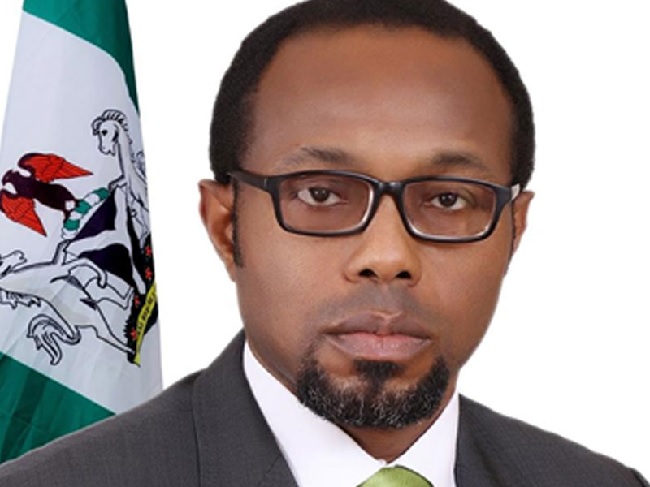The National Institute for Pharmaceutical Research and Development (NIPRD) has signed a Memorandum of Understanding (MoU) with the University of KwaZulu-Natal (UKZN), South Africa, to improve the traditional medicine industry and by extension ensure medicine security in Africa.
The partnership focuses on research and development, human capital development and community engagement, in the context of the Traditional Medicine Value Chain.
The partnership is also expected to produce various socio-economic benefits including business and investment opportunities, job and income generation opportunities for stakeholders involved in the African Traditional Medicine Pharmaceutical Value Chain, especially traditional health practitioners.
Speaking during the ceremony, Minister of State for Health, Senator Adeleke Mamora, said that the MoU is part of efforts to remove all barriers that hinder the growth of traditional medicine in Africa.
Mamora further maintained that traditional medicine is part and parcel of Nigerian culture and therefore and whatever barriers that there are, the government must do everything possible to remove them.
“Barriers in terms of recognition, labelling, not been open. One of the things that we are doing is to remove the vail and make it open and transparent and have documentation and ensure that we removed the fear of taking away the intellectual property rights of the traditional medicine practitioners.”
Speaking at the virtual MoU signing ceremony in South Africa, the Director-General of NIPRD, Dr Obi Adigwe, said that the agreement will benefit the entire African continent.
ALSO READ FROM NIGERIAN TRIBUNE
- Dejo Tunfulu: ‘I Thought It Was April Fool Prank’
- 2023: I May Emerge Consensus PDP Presidential Candidate — Peter Obi
He explained that UKZN was chosen among many other earlier suggested institutions for the partnership due to the good work it is doing in the area of traditional medicine.
Adigwe insisted that Africans must take responsibility for providing access to safe, affordable life-saving medicines for the people of the region.
“Medicine security concept that we conceptualise a decade ago was a concept that argued that unless we as Africans begin to determine how our medicines are developed, produced and how our medicines are distributed, we will never be in a position to ensure sustainable access to safe, affordable life-saving medicines to our people.
“Embedded in the medicine security concept were social-economic indicators that align with local manufacturing and local development of these resources.
“Things like job creation, capacity building, knowledge transfer and revenue generation not only for practitioners but also for government,” he said.
Adigwe, however, insisted that: “As a people, we must not abdicate the responsibility of providing healthcare for our people to people outside this continent.
“As Africans, we must not abdicate the responsibility for developing socio-economic programmes that will ensure that our youth, women have jobs, adequately employed, they no longer seek pastures whether through legal or illegal immigration elsewhere.
“As a people, we must no longer abdicate the responsibility of designing programmes that will ensure that the plants which we find in our background for which traditional medicines practitioners have gained knowledge and handed over from generation to generation before them, that the knowledge is preserved and designed in a format that is translated into processes and products that will result into validated health care solution as well as monies in the pockets of these practitioners.”
On his part, UKZN Deputy Vice-Chancellor and Head of the College of Humanities, Professor Nhlanhla Mkhize, described the collaboration as the first of its kind.
“At the heart of this collaboration is our belief that solutions for African healthcare challenges should be based on the willingness and commitment of African people and communities to promote, preserve and protect their local knowledge systems.
“The signing of this MoU happens at a time when global challenges such as COVID-19, have shown us that Western knowledge systems do not have all the solutions to mitigate the problems we encounter in a world characterised by cultural and ecological diversity.”
Earlier, the Director of the Centre in Indigenous Knowledge Systems (CIKS), Professor Hassan Kaya, explained that the partnership will also focus on how to improve the quality of life of those involved in the traditional medicine industry through packaging and by making their products become more attractive so that they can be sold anywhere. “In other parts of the world, you find that traditional medicine practitioners are able to sell their products anywhere because there is value addition,” he noted.
How Workplace Sexual Harassment Forces Many Out Of Their Dream Jobs
NIPRD signs MOU with South Africa to improve traditional medicine security
Marburg Virus: What You Need To Know About Disease Recently Detected In West Africa
NIPRD signs MOU with South Africa to improve traditional medicine security
WATCH TOP VIDEOS FROM NIGERIAN TRIBUNE TV
- Relationship Hangout: Public vs Private Proposals – Which Truly Wins in Love?
- “No” Is a Complete Sentence: Why You Should Stop Feeling Guilty
- Relationship Hangout: Friendship Talk 2025 – How to Be a Good Friend & Big Questions on Friendship
- Police Overpower Armed Robbers in Ibadan After Fierce Struggle






